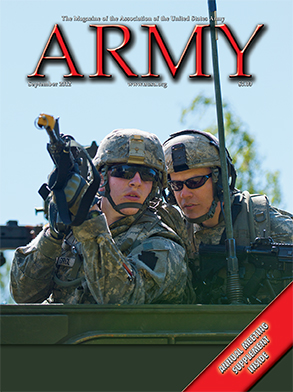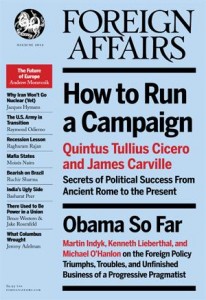 My latest piece in The Atlantic:
My latest piece in The Atlantic:
The U.S. intelligence community is having a terribly rough time lately with employees who just won’t keep their mouths shut. Following Edward Snowden’s drip-drip-drip of top-secret revelations and “several high-profile anonymous leaks and publications by former senior officers,” CIA in late June launched the “Honor the Oath” effort — an internal movement to stop officers from leaking classified material. It was indeed deliciously ironic that this missive was then leaked to the Associated Press.
But this new effort is a misguided and even counterproductive approach to keep secrets, well, secret. It’s misguided because CIA employees typically don’t — with rare exceptions — disclose classified information to the press. Here’s why:
They’re constantly reminded of the oath already. CIA employees are already acutely aware of what happens when you disclose classified material. From the first day a new agency trainee, analyst, or administrative staff member enters CIA Headquarters and “takes the oath” to uphold and protect the U.S. Constitution, they are told in no uncertain terms the very ugly, life-destroying consequences of betraying privileged information. As a former analyst, I remember the gruff, mustachioed fellow from the Office of Security who, on the first day of my employment, made this point crystal clear.
This emphasis is underscored in multiple training classes. For example, every new analyst must attend the Career Analyst Program (CAP), where grizzled intelligence vets teach “the basic thinking, writing, and briefing skills needed for a successful career.” One point that gets hammered home is what happens to people who provide information to those who shouldn’t have it — especially foreign governments. These classes highlight, among other cases, the Aldrich Ames and Robert Hanssen affairs, and take care to emphasize that these former top officials are currently serving life sentences in prison.
It’s the Agency Culture. CIA employees are reminded in ways both large and small about the consequences of mishandling or misusing classified documents. Your colleagues remind you. Your managers remind you. The internal websites remind you. When someone is caught providing secrets, even the director reminds you.
Furthermore, because of their chosen careers, CIA employees are made justifiably paranoid about “security violations” — for instance, if you absent-mindedly took a classified document from your office, placed it in your briefcase or purse, exited the building, and then remembered you had it while walking to your car, the Office of Security could slap you with a security violation. (Pro tip: Don’t take a suitcase or large purse to work.)
There are many other ways to trip up. If you didn’t correctly seal a secret document while en route to a meeting, it would be a violation. Or casually mention a friend’s real name publicly who might or might not be undercover. Any of these violations could cause you to lose your security clearance and your job.
Certainly, if a person is considering providing classified documents to the press or a foreign government, he or she is probably far, far down the path to breaking the law. Edward Snowden had been considering leaking top-secret documents for years prior to actually doing it. It is doubtful that any seventh floor-directed educational effort would have steered him away from a lonely trip down the road to treachery.
CIA’s classified disclosures are usually to foreign governments. Compared to the military and other civilian agencies, CIA has a decent track record of keeping secrets. Of course, moles in the agency have done grievous damage to American security, like Aldrich Ames and Harold Nicholson, who both spied for the Soviet/Russian intelligence services, and translator Larry Wu Tai Chin, who secretly worked for the Chinese government for decades. Even Ghana’s intelligence service during the 1980s penetrated CIA.
Granted, there are a few CIA officials who go to the press, but their subsequent punishments have varied. John Kiriakou is now serving 30 months in a federal prison after providing the name of undercover officer. But senior CIA official Mary McCarthy, who leaked the existence of “black sites” housing captured al-Qaeda operatives to the Washington Post‘s Dana Priest was fired, but she was planning on retiring anyway — and served no jail time. And of course, Edward Snowden was once a former CIA computer technician.
But it’s usually other government and military outfits that leak to the press. The father of all leakers, Daniel Ellsberg, worked for the Department of Defense, while W. Mark “Deep Throat” Felt was the FBI’s associate director. Between 1950 and 1975, civilian and uniformed personnel working for the military committed the majority of the espionage detected. This is on top of all the individuals who have committed espionage on behalf of foreign governments — Jonathan Pollard, Ana Montes, John Walker Jr., Ronald Pelton, and Clyde Lee Conrad — were all non-agency personnel.
***To be honest, it must be a bit insulting to many long-time CIA employees to be told they need to try harder to honor their oath. Director John Brennan should instead stay positive and laud the vast majority of individuals at CIA for their efforts to maintain secrecy and prevent leaks. By reinforcing these agency values positively — and by not adopting a suspicious approach toward employees — he will probably receive a better reception among his subordinates.
The vast majority of individuals who work at CIA and at other intelligence agencies will never, ever leak classified material (grumbling about work is another story, however). Ferretting out the moles and troublemakers in the agency will require more than a Glorious Loyalty Oath Crusade and reminding employees that they raised their right hand and said some words when they first joined the federal government. CIA needs to have a better strategy than that.


